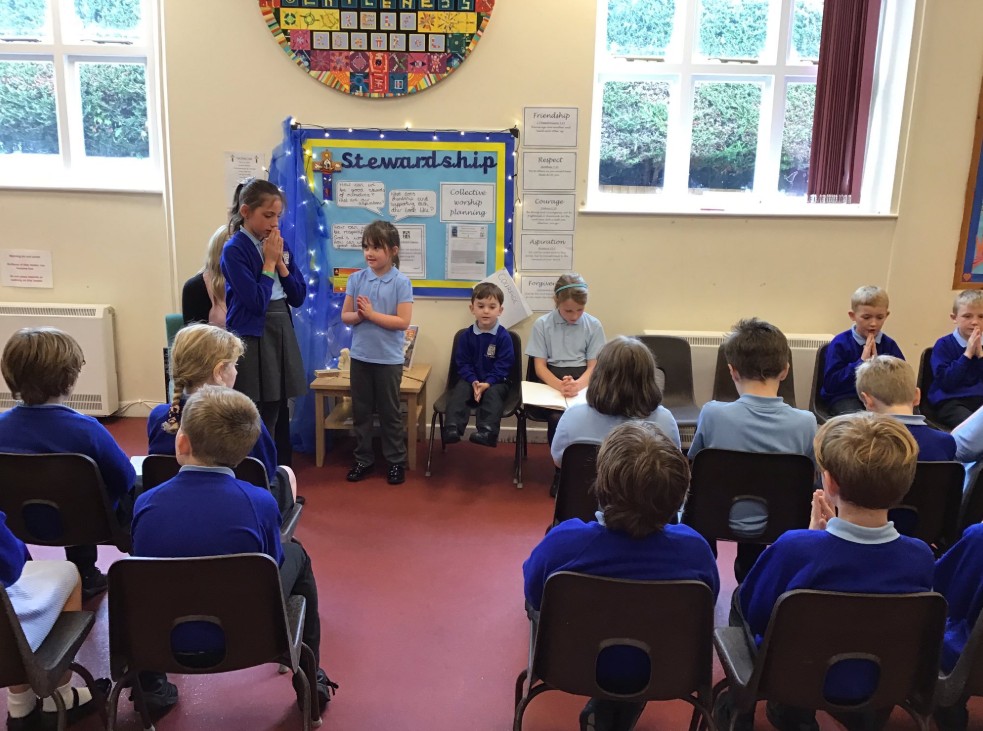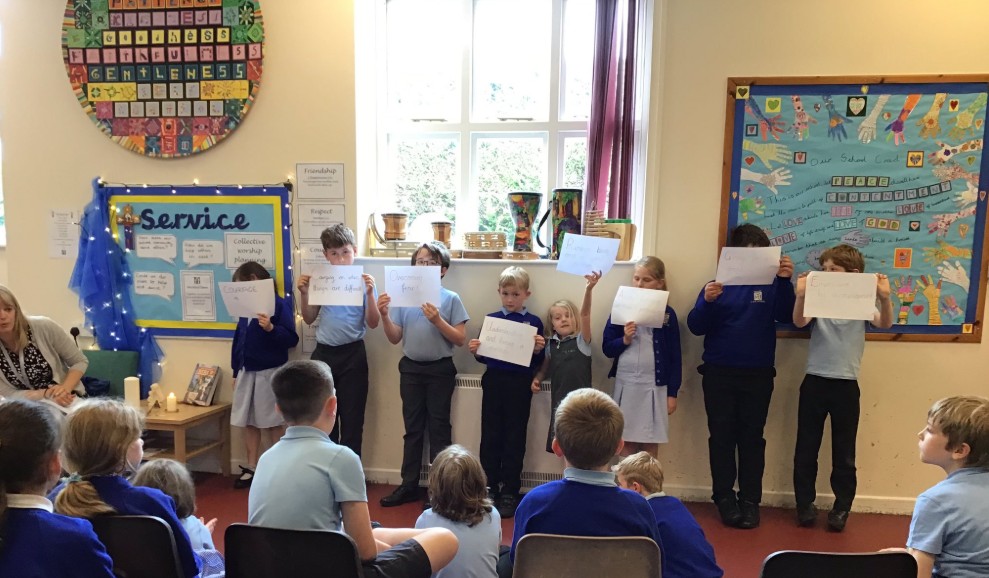
Collective Worship at Dolton C of E School plays a vital role in supporting children to develop as positive citizens of the future; it is the heartbeat of our school. It is the time when the whole school or groups within the school meet together in order to learn and reflect on individual behaviours and attitudes.
The beginning of each week starts with a whole school worship which lays the foundations of reflection for the days ahead and is always closely linked to our values driven curriculum and learning that week. Teachings of Jesus from the bible, linked to our key values, are often shared - we place an emphasis on helping children to grow and form their own opinions based on our distinct Christian foundations and beliefs. Collective worship also offers all pupils within our school an opportunity to reflect by engaging them in relevant, meaningful experiences and provides opportunities for the pupils’ spiritual, moral, social and cultural qualities to development by providing experiences through storytelling, religious festivals, silence, stillness, prayer and music.
Each class has its own reflection area which acts as an additional space for children to be still. Each area displays the schools key values and vision and provides a sense of awe and wonder of the world which can then act as a catalyst for big questions to be explored often through the theme of worship that week. There are often opportunities for children to write, sketch, listen to music or read with their ideas being gathered and celebrated around in the space in a variety of ways.
At the end of the week the school invites the community to come together and celebrate the learning of the week. Children share their work and certificates are given out to those children who have demonstrated the school’s values or shown a real engagement in reflection and how this had impacted on their learning that week.
Collective Worship at Dolton C of E School is a time when the school community can:
- Share in the school communities vision and values.
- Give children the opportunity to enter into experiences which lie at the heart of religion, helping them to learn about religious worship and providing a framework for understanding;
- Foster a reverential attitude to God, affirm the Christian faith and the Christian status of Jesus as the Son of God;
- Encourage pupil to consider fundamental questions about the purposes of being;
- Encourage pupils to reflect upon the theological aspects of the school’s values and how God expects us to behave.
- Encourage pupils to reflect on justice, equality and courageous advocacy, how these are demonstrated within the bible, throughout life and how they can become courageous advocates for positive change;
- Coincide with teaching and learning within class which in turn will support the school’s vision and developing curriculum for character;
- Demonstrate practice of religious faith through music, poetry, story, drama and prayer;
- Provide a warm, caring and respectful atmosphere conducive to worship;
- Help pupils to experience a sense of awe, wonder, reverence and inner stillness;
- Raise pupil’s curiosity about the ultimate mysteries of life;
- Help pupils appreciate the we are ‘stewards’ of God’s world;
- Enable pupils to reflect on their own belies in relation to those of others;
- Enhance pupils’ spiritual, moral, social and cultural development;
- Affirm pupil’s personal worth and responsibility;
- Celebrate individual and collective achievement;
- Develop a sense of community;
- Celebrate religious festivals and special occasions.

